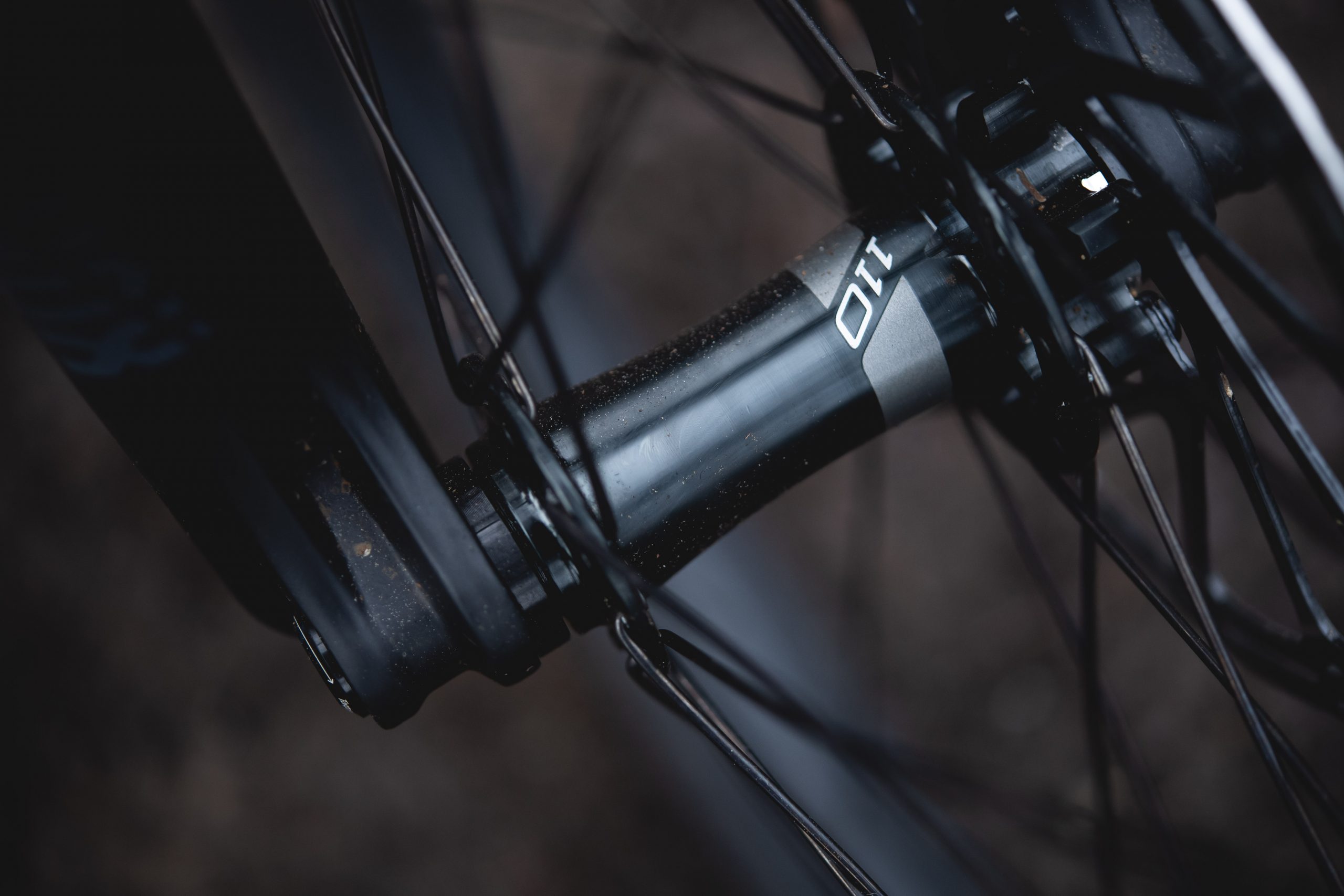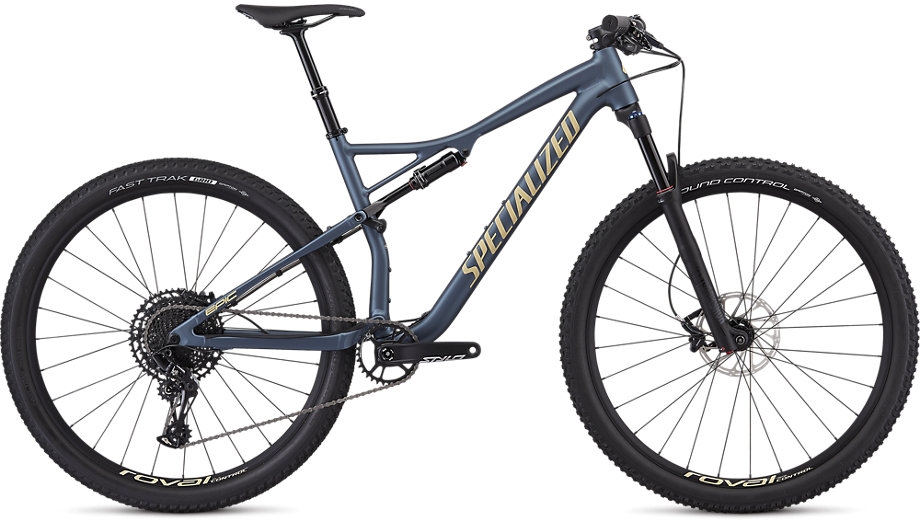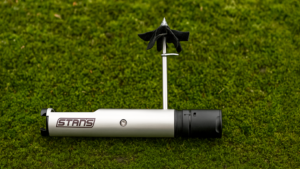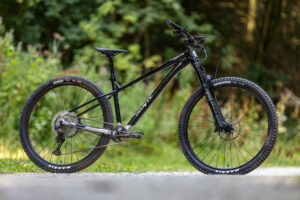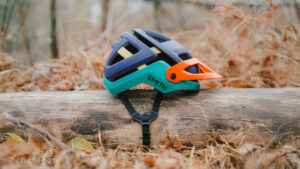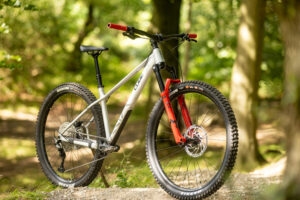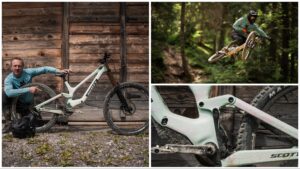The Specialized Epic is one of the most famous names in XC racing, right up there with that other Specialized racer, Ned Overend. This Evo model gets more travel and a dropper post, so does that make it just as adept at singletrack shredding as winning races?
Specialized Epic Comp Evo (2019) review
>>> The best XC race bikes: Hardtail and full-suspension
At the launch of Specialized’s Epic XC race bike in 2017, the designers had already been playing with a few different models, incorporating dropper posts and longer-travel forks. What they realised was, that despite the lack of travel, pumping up the Epic transformed it into a pretty capable trail bike. The design team was so impressed that the Epic Evo was born and is now available in two complete builds. The Epic Comp Evo at £2,900 and Epic Expert Evo at £5,150. And if the M5 aluminium alloy frame on the Comp Evo looks like the standard alloy Epic, that’s because both models use the exact same frame. So it’s only by fitting a longer-travel fork that the Evo gets slacker and more trail-oriented geometry. Specialized has also added a larger volume rear tyre, which means the BB height on the Evo also creeps up, but more importantly the bike retains a lot of the Epic’s race bred personality, so riders coming from a pure XC background shouldn’t feel too far from Kansas.
Suspension
During the last round of revisions, Specialized switched the Epic to a flex stay suspension set-up, while retaining the distinctive Brain shock. The smart part of the shock is the inertia valve mounted at the rear axle. It’s what determines just how the shock reacts to rider inputs and the terrain. As such, sprinting out of the saddle and climbing on smooth terrain keeps the shock locked. Hit a bump on the trail and the shock opens up and remains open for as long as the impacts keep coming. The threshold can be adjusted to five levels of Brain function, from efficiently firm to almost switched off and fully active. We say almost, because it still retains the slightly disconcerting knock when it opens up on single hits.
The 120mm RockShox Reba RL fork doesn’t have a Brain but it gets a really progressive compression tune and it certainly feels less supple and more efficient than the Fox fork on the Scott. The obvious drawback being that the 32mm Reba chassis isn’t very stiff, but this is offset somewhat by using oversized 28mm Torque Caps at the hub to reduce flex.
Components
You wouldn’t expect SRAM’s entry-level Eagle drivetrain on £3k bike, but the 12-speed NX kit delivers crisp shifts every time. The only real sticking point is the cassette; not only is it a heavy lump of metal but it uses a different fitting to the rest of SRAM’s 12-speed range. Result: there’s no simple way to upgrade the cassette to something lighter without also changing the freehub.
Specialized has really thought about the tyre choice on the Evo, and whilst the fast rolling Fast Trak rear tyre is less than ideal in most situations, it does feature the tougher GRID casing. This should help increase confidence going into rockier sections, something to consider when you only have 100mm of travel at your disposal. The more aggressive Ground Control front tyre does offer a better and more predictable level of grip though, and uses a lighter casing to save rotational weight.
Performance
Compared to the Scott Spark 940, the Specialized feels taller and rangier, with a slightly more nervous and flighty feel at higher speeds and on technical descents. But this isn’t a direct criticism, as it gives the Evo an engaging ride quality and one that rewards hard work on the pedals. Yes the rear suspension can’t be preloaded in corners the same way as a conventional shock, but the way the Brain shock isolates rider effort really makes the Epic Evo climb like a beast; almost hardtail-like and it feels super-stiff and efficient.

Point it downhill, however, and the taller bottom bracket height feels like you are perched on top of the bike. Making it a constant balancing act to keep the front wheel weighted enough to maintain grip without feeling like you are going to be launched over the bars. As such, raising the front end and shortening the stem would definitely give the Epic Evo a more attacking riding position.
Verdict
The Epic Comp Evo, with no uncertainty, retains its XC roots thanks to the Brain shock and race geometry. So for riders looking for a bike to race at the weekend but still want to have fun on the trails midweek it is a great choice. Yes, the Brain shock still has a quirky response, but if you’re transitioning from a hardtail to your first full-suspension race bike you’ll love how efficient it is when cranking hard. The increased fork travel isn’t enough to transform it into a trail bike, but it stops the Epic Evo feeling too nervous at speed and certainly increases the versatility of the Epic well beyond the confines of the race tape.






